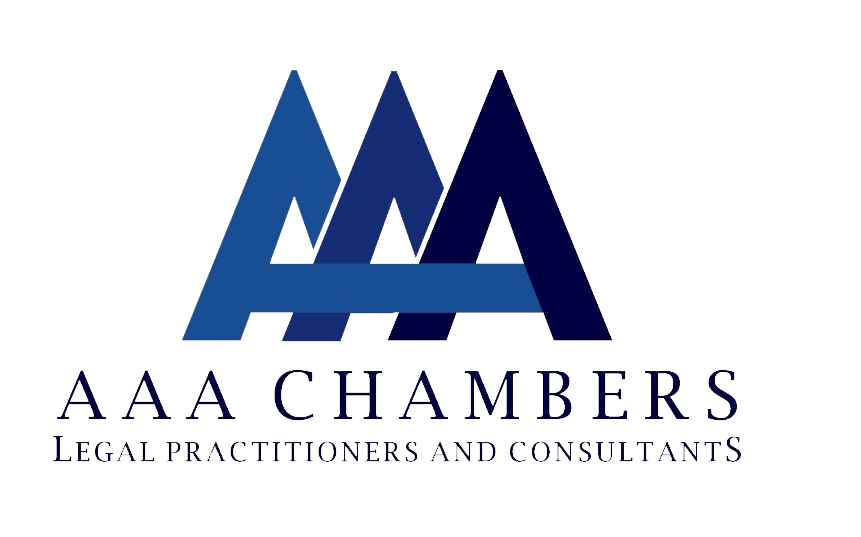By Ayodeji Agunbiade, Litigation Officer – AAA Chambers
Introduction
On 31st January 2019, the new Civil Procedure Rules – THE HIGH COURT OF LAGOS STATE {CIVIL PROCEDURE} RULES, 2019, as one of the successful achievements of the former Chief Judge of Lagos State, Hon. Justice Opeyemi Oke, as he then was, came into force repealing The old Rules of 2012. With it came innovations part of which deals with the new filing rules which are the trust of this article. Compliance to the rules has now become more mandatory than ever before. The new Rules is accompanied by two Practice Directions, namely “Expeditious Disposal of Civil Cases: Practice Direction No 1 of 2019-Backlog Elimination Program (PD 1) and “Expeditious Disposal of Civil Cases: Practice Direction No 2 of 2019 -Pre-Action Protocol (PD 2)
The old Rules was plagued with criticisms such as excessive delays in the administration of justice, and non-compliance with international best standards. It is expected that the introduction of the new rules will implement reforms directed towards speedy and efficient administration of justice, and address the lapses identified in the old rules.
Principal Changes and Amendment in Filing Process
Some of the principal changes/amendments introduced in the new rules are:
Form and Commencement of Action:
A person instituting an action (Claimant) must include the Pre-action protocol form 01 with other supporting documents. The supporting documents are called Pre-Action Protocol Bundle; {Order 5 Rules 2 {e}. Also, express provisions are made regarding this in the accompanying Practice Direction on Pre-Action Protocol. There was no provision with regards to this in the old rules.
Service of Originating Process:
A judge is now empowered to grant an application for an order of substituted service through emails. (Order 9 rule 5(1)). This improvement in the new rules was not provided for in the Old Rules.
Appearance:
A legal practitioner appearing for a Defendant is now required to provide a telephone number and email address in the Memorandum of Appearance. (Order 11 rule 2(2) & (3).) Furthermore, the penalty for late appearance has been increased from ₦200 (Two Hundred Naira) to ₦ 1000 (One Thousand Naira) for each day of default. (Order 11 rule (5)).
Admissions:
When a Party is given Notice to Produce a set of documents that are not necessary, the party making such requests may be made to pay a sum of not less than ₦10,000 (Ten Thousand Naira). (Order 21 rule 5) This is an increment from ₦5,000 (Five Thousand Naira) provided for in the old rules.
Amendment of Originating Process and Pleadings:
The penalty for not amending any filed process or document within the specified time, or in the absence of a specified time), within seven(7) days after an order to amend has been made, has been increased from ₦200.00 (Two Hundred Naira) to ₦1000.00 (One Thousand Naira) for each day of default. (Order 26 rule 4)
Alternative Dispute Resolution (ADR) Proceedings:
The new rules require any application for ADR proceedings to be commenced by Originating Motion while the old rules only provided for Motion on Notice. (Order 28 rule 3(1)) Also, the period within which an application can be made to set aside or remit any award has been extended from six (6) weeks to three (3) months after such award has been made and published to the parties. (Order 28 rule 4(2)).
Discovery and Inspection:
The liability of a legal practitioner who neglects without reasonable excuse to give notice to his client upon receipt of order for interrogatories, or discovery or inspection has been changed from attachment to committal. (Order 29 rule 10)
Issues, Inquiries, Accounts and References to Referees:
The period within which issues of facts in dispute are to be filed after closing of pleadings has been extended from seven 7 days to 14 days. (Order 30 rule 1(1))
Proceedings at Trial:
The time within which an application can be made for relisting of a matter that was struck out or set aside has been extended from six 6 days to 7 days after the Order or Judgment, or other extended period the judge may allow.
Filing of Written Address:
The volume of a written address must not exceed twenty (20) pages, and a reply on point of law must not exceed five (5) pages, except with the leave of Court. There was no limit on the number of pages of a written address in the Old Rules. (Order 33 rule 5(3))
Default Fees:
The liability for a party who defaults in completing an act within the prescribed timeline has been increased from a daily default fee of ₦200 (Two Hundred Naira) to ₦1000.00 (One Thousand Naira) for each day the default continues. (Order 48 rule 4).
Costs:
Where an offer of settlement made in the course of Case Management, ADR or Pre-Action Protocol is rejected by a party and the said party eventually succeeds at trial but the award is not in excess of the offer of settlement earlier made, the winning party must pay the costs of the losing party from the time of the offer of settlement up to judgment. (Order 53 rule 2). An offer for settlement made in the course of Pre-Action Protocol was not included in the old rules.
Fast Track Procedure:
The time within which a defendant is required to file a response under Fast Track Procedure has been reduced from forty-two (42) days to thirty (30) days. (Order 59 rule 5(1)).
Proceedings in Revenue Matters:
A Respondent who disputes the reliefs sought in Revenue matters must file an Answer within fourteen (14) days of the service of the Petition as opposed to twenty-one (21) days in the old rules. (Order 60 rule 7(1)). A Petitioner who intends to respond to a Respondent’s Answer must file a further affidavit and written reply within three (3) days as opposed to seven (7) days in the old rules. (Order 60 rule 8). However, the period for hearing petitions after the expiration of the time limited for filing and service has been increased from seven (7) to fourteen (14) days. (Order 60 rule 9(1)).
Conflicts that arise in the course of hearing such matters must now be resolved by recourse to the provisions of the relevant tax laws. In the old rules, the Court may either decide the matter upon the Affidavits or may direct that the matter be decided by oral evidence in court.
Grant of Probate or Letters of Administration without Will:
A person applying for a grant of probate and letters of administration without WILL may require only one surety where the entire estate is not worth more than ₦1,000,000 (One Million Naira). (Order 63 rule 3(2)). Under the old rules, the estate value for one surety was ₦250,000 (Two Hundred and Fifty Thousand Naira). Under the new rules, where a guarantee is required, it shall be given by two sureties, except where the gross value of the estate does not exceed ₦1,000,000 (One Million Naira. (Order 63 rule 4(5)(a).
Filing Procedure
What is filing?
Filing according to Black’s Law Dictionary, 7th Edition, is a particular document {such as a pleading in the file of a Court clerk or record custodian. In effect, filling encompasses the process or stages of placing a particular document or pleading into the Court’s file.
Filing requirement in the High Court of Lagos State {Civil Procedure} Rules, 2019.
PRE-ACTION PROTOCOL FORM O1 (Order 5 Rules 2{e} and 5 {3}{e}). Any party who intends to commence any proceeding vide a writ of summons or originating summons must file along with it Pre-Action Protocol Form 01 with accompanying processes which also can be referred to as Action Protocol Bundle, which consists of:
- FORM 01
- Letter(s) of Demand or Claims written by the Claimant to the Defendant.
- The Defendant or Respondent’s response if any
- Other Documents which the Plaintiff intends to Rely on at the trial
- Affidavit of Facts
- Statement of Intent or Reason(s) for Litigation
Note: If no response from the other party, An Affidavit for Non-Participation in Settlement will replace the Affidavit of Fact
WRIT OF SUMMONS (O, 5. R 3) BUNDLE
The Claimant intending to file his case must bring before the Court a Writ of Summons as in Form 2 or Originating Summons as in Forms 3,4, or 5. The Writ of Summons is accompanied by:
- A statement of Claim
- Written Statement on oath
- Copies of every document to be relied on at trial and
- Pre-action Protocol Form 01
Furthermore, a party filing an Originating Summons must accompany it with:
- An affidavit setting out the facts relied upon
- All the exhibits to be relied upon
- A written address in support of the application
- Pre-action form 01
The Practice Directions
The Practice Directions titled “Expeditious Disposal of Civil Cases: Practice Direction No 1 of 2019-Backlog Elimination Program (PD 1) and “Expeditious Disposal of Civil Cases: Practice Direction No 2 of 2019 -Pre-Action Protocol (PD 2) are designed to ensure the swift and expedient disposition of civil cases, and eradication of backlog cases.
PD 1 applies to civil proceedings instituted by claim (including counterclaim, and renewal of claim) in the High Court Registry, and such other proceedings as the Chief Judge may direct. (It does not apply to proceedings on a separate list – e.g. the fast track list)
PD 1 CONTAINS THE FOLLOWING INNOVATIONS:
Designation of qualifying cases as “Back Log”:
Cases filed over 5 years ago and are yet to be decided or settled are qualified to be handled as backlog cases under the backlog elimination program. The backlog cases are to be struck out, withdrawn, settled or decided expeditiously.
Documents based trial:
PD 1 gives the parties to backlog cases the opportunity to opt for a trial based solely on documentary evidence.
Trial Plan:
In the event that the parties to backlog cases are unable to reach a resolution through alternative disputes resolution mechanisms, the parties are expected to draw up a detailed trial plan.
A flow chart:
PD 1 features a simplified flow chart which illustrates the general flow of the procedure under the practice directions. This is a user-friendly feature that aims to make the system easy to understand by non-lawyers.
Time for delivery of judgment (60 days):
Judgment in a backlog case is to be delivered within 60 days of the adoption of final addresses by both parties. It is notable that this period is shorter than the 90-day period prescribed by the 1999 Constitution of the Federal Republic of Nigeria as amended.
PD 1 stipulates strict timelines, which if not complied with will attract stiff sanctions and penalties. For example, where a case is struck out for non-compliance with the return date attached to the CMC notice or for failure to comply with the procedural timeline or for failure to appear on any court dates under the backlog hearings, the party applying for restoration of proceedings shall pay costs not less than ₦100,000.
The PD 2 establishes the Pre-Action Protocol. The Pre-Action Protocol is one of the documents to be filed along with the originating processes and it is to be frontloaded only in Lagos, by the Claimant only. The Pre-Action Protocol applies to all actions instituted at the High Court of Lagos State.
PD 2 CONTAINS THE FOLLOWING INITIATIVES:
Pre-Action Protocol Bundle:
A claimant instituting an action must include Pre-Action protocol form 01 with other supporting documents called the Pre-Action Protocol Bundle which must be spiral bound separately and arranged in the appropriate order. The Pre-Action Protocol Bundle consists of the pre-action correspondence between the parties to show evidence that ADR has been considered.
Settlement of Disputes through ADR:
Mandatory provisions to make parties resolve their dispute through ADR, and only considering litigation as the last resort. Upon proceeding to litigation, each party’s l lawyer is expected to deliver a statement on oath stating reasons for his/her insistence on litigation rather than settlement.
Provisions for specific actions:
Extensive provisions have been made on the application of the pre-action protocol to some specific actions such as on Defamation, Mortgages, Land Matters, Recovery of Debts, and Recovery of Premises.
Failure of Compliance with the Protocol:
Some of the penalties include a daily default fee of N1000 which shall accrue as costs in favour of the counter-party. There is also a minimum cost of N100, 000 for every person who unreasonably refuses to comply but insists on going to trial. The PD 1 mandates parties to make efforts to resolve the dispute through all the means of the Alternative Dispute Resolution (ADR) and only considering litigation as the last resort. This is to reduce the truck-load of matters that are usually filed at the court and to prevent the filing of frivolous actions.
Its importance to the delivery of justice is the hope that the new rules will produce the desired result and that if necessary and when the circumstances require, it is further amended to address any pending issue.
Conclusion
We sincerely believe that the Civil Procedure Rules 2019 of the Lagos High Court is a welcome development and if adequately complied with, will surely expedite the justice system in Lagos State. However, it is our belief that the Lagos State Judiciary can subsequently improve in other to match International Standard. Here are our few suggestions that we have in achieving this:
- Mandatory Rule for Judges: There should be a provision in the Rules mandating Judges to notify lawyers of their absence in Court prior to the date.
- CCTV Camera: The use of CCTV in Courts should be adopted for checks and balances. This would mandate efficiency because this will make both the bar and the bench more cautious of their utterances.
- Default Payment: While the default payment is very effective in putting Lawyers on check, it will be more effective where 50% of the said default fee is made to be paid to the other party, who definitely is the party that has suffered the daily.
- Stay of Execution: Lawyers use this as a tool to frustrate and delay justice to be attained in matters, whereas the majority of the Lawyers do not follow up on it after it has been granted. This results in delayed justice, which is unfair. It is our suggestion that before a Stay of execution is heard, especially in monetary judgments or Debt Recovery related matters, the Judgment Sum should be paid first into the Court’s designated account and subsequently upon the decision of the Appellate Court, the deposited funds can either be retrieved by the Judgement Creditor in satisfaction of the Judgment Sum or refunded to the Judgment Debtor.
- Every case coming up in Court on a particular date should be allotted a definite time, as this will reduce congestion in Court.


where to buy cialis in canada [url=https://rcialisgl.com/ ]sex pills cialis[/url] cvs cialis over the counter
craigslist cialis [url=https://krocialis.com/ ]find cialis online[/url] is cialis covered by blue cross blue shield